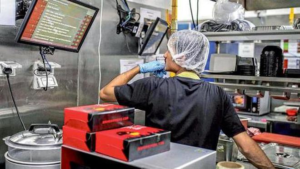
-KH News Desk (cbedit@imaws.org)
India’s commissary cloud kitchens have been touted as the future of the food industry, promising low overhead costs and high-profit margins. However, recent reports suggest that many of these kitchens are failing to live up to their potential. So, why are India’s commissary cloud kitchens struggling?
One of the primary reasons is oversaturation. With so many cloud kitchens popping up in every corner of the country, competition has become fierce. Many kitchens are offering similar menus, making it difficult for consumers to choose one over the other. Additionally, the rise of food delivery apps has led to a surge in demand for cloud kitchens, but this has also resulted in a drop in average order values, as customers opt for cheaper options.
Another issue is the lack of focus on quality. Many commissary cloud kitchens rely on pre-prepared ingredients and standardized recipes, leading to a lack of variety and creativity in their menus that will end up in customer dissatisfaction and a loss of business.
Finally, the lack of regulatory oversight in the industry is a concern. With no clear guidelines or standards in place, it is difficult to ensure that commissary cloud kitchens are operating safely and hygienically. This can lead to food safety issues and damage to the reputation of the industry as a whole. To address these challenges, commissary cloud kitchens need to focus on differentiation and innovation, offering unique menus and experiences that set them apart from the competition. Quality control measures must also be put in place to ensure that food safety and hygiene standards are being met. With the right approach, India’s commissary cloud kitchen industry can still thrive and revolutionize the country’s food scene.







